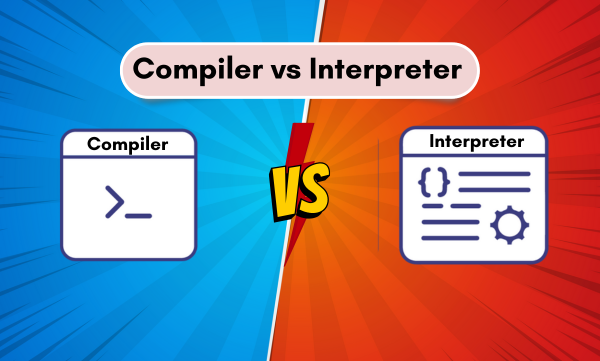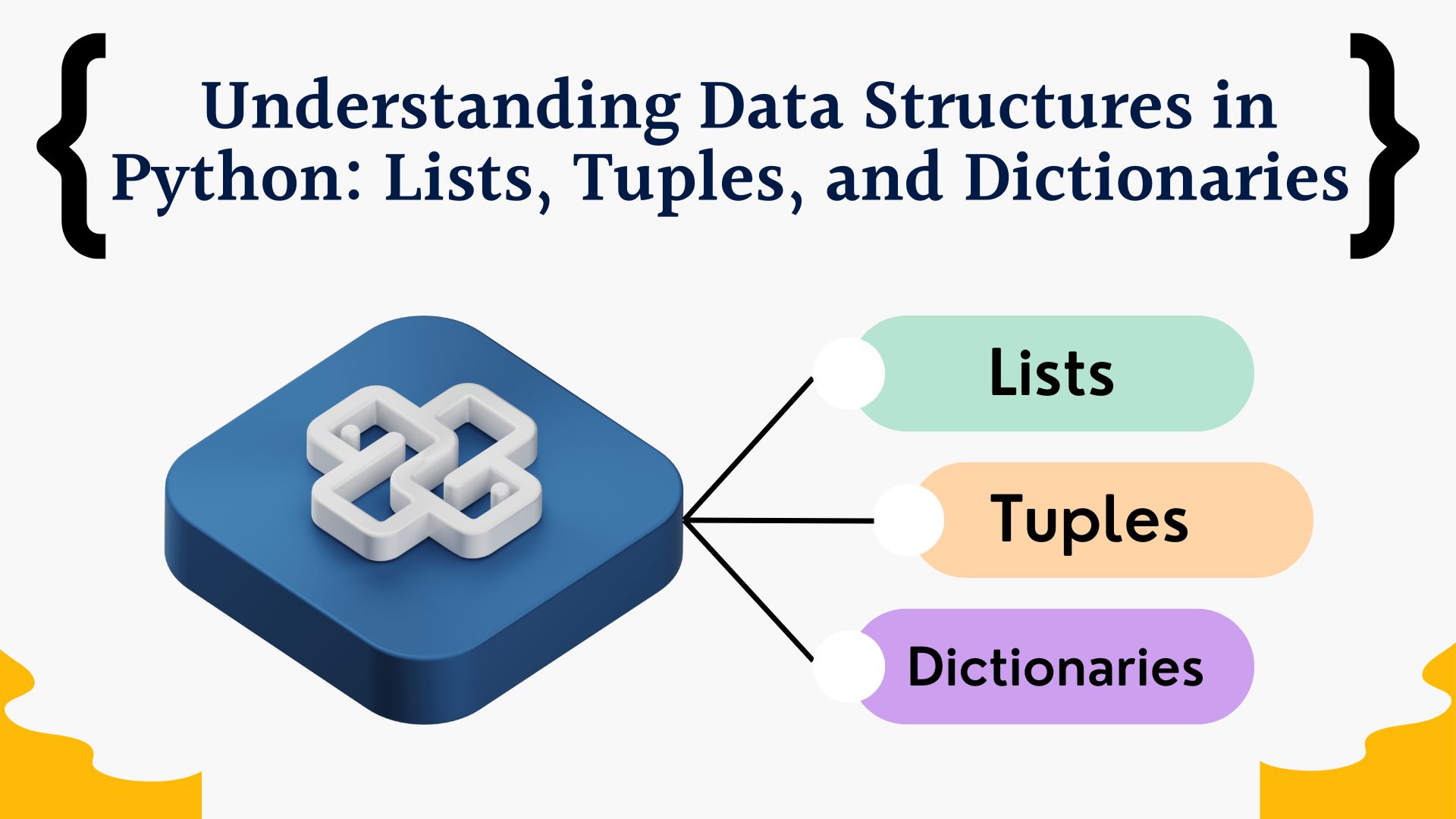Interpreter VS Compiler
An interpreter and a compiler are two different types of programs used to translate one language into another. In real life, an interpreter and compiler can be compared to a person who speaks a foreign language and can translate what is being said into a language that the listener can understand.
For example, if we were to go to a foreign country, an interpreter would be able to translate what is being said in the foreign language into English for us, while a compiler would be able to understand the foreign language and translate it into English for us. By using an interpreter or compiler, we can gain a better understanding of the foreign language and communicate more effectively with the people we meet.
Although we communicate with computers using high-level programming languages, did you know these languages aren’t the only ones they can understand? Compilers and interpreters are types of system software that help make the conveyancing process more efficient. What do these interpreters and compilers do? Are they similar? Do compilers and interpreters differ in any way?
In this article, we’re going to discuss the explanations of compilers and interpreters as well as their differences.
What is an interpreter?
An interpreter is a computer program that translates code written in one programming language into another programming language. It takes source code written in one language and translates it into equivalent code in another language. The interpreter reads source code one line at a time and converts it into machine code that the computer can directly understand and execute.
Working as an interpreter
Interpreters are programs that execute instructions written in a programming language. They run the program line by line, interpreting each statement as it reads.
- Lexical Analysis: The first phase of interpreting a program is lexical analysis, also known as lexing or tokenizing. This process involves breaking the program down into its smallest lexical components, known as tokens. Tokens can be keywords, operators, identifiers, punctuation, string literals, and so on.
- Parsing: The parser takes the tokens and uses them to construct a parse tree, which is a hierarchical tree structure that represents the syntactic structure of the program. The parser checks the program’s syntax to make sure it is valid.
- Semantic Analysis: The semantic analysis phase is where the interpreter checks the meaning of the program. This includes type-checking, which is the process of ensuring that variables and functions are used correctly.
- Code Generation: Once the program has been checked for correctness, the interpreter generates code for the target machine. This code is usually in the form of assembly language or machine code.
- Execution: The last phase of interpretation is execution. This is where the interpreter runs the program, executing the instructions one by one. The interpreter keeps track of the program’s state, including the values of variables and the current program counter.
Advantages and Disadvantages of Interpreters
Advantages:
- Interpreters can quickly and accurately convert spoken language from one language to another, allowing two people to communicate without knowing the other’s language.
- Interpreters can interpret many different types of languages, including dialects and accents.
- Interpreters can be used in various situations, including business meetings, medical appointments, court proceedings, and more.
- Interpreters can help bridge cultural gaps, aiding in understanding between people of different backgrounds.
Disadvantages:
- Interpreters are expensive, and the cost of hiring an interpreter can sometimes be a barrier to obtaining their services.
- Interpreters may not always be available in the language and dialect you need.
- An interpreter can’t always interpret everything that is said, as some words and phrases may have no equivalent in the other language.
- An interpreter can’t always convey the nuances of a conversation, as certain cultural references and nuances may be lost in translation.
Read Also:
1. Coding for Kids
2. Robotics for Kids
3. Block Diagram of Computer
What is a compiler?
A compiler is a computer program that translates code written in a high-level programming language, such as C++ or Java, into machine language that the computer can understand and execute. Compilers are essential to software development, as they enable programmers to write code that is portable across different systems and platforms.
Working on a Compiler
A compiler is a computer program that takes source code written in a programming language and translates it into machine code that the computer can understand and execute. The process of compilation generally consists of different stages: –
- Lexical Analysis: This is the first phase of the compilation process. The compiler scans the source code and breaks it down into small tokens. These tokens are then sent to the parser.
- Parsing: In this phase, the parser checks the syntax of the program and builds a data structure (often called a parse tree) that can be used in the translation process.
- Semantic Analysis: The semantic analyzer checks the program for semantic errors (such as type mismatches). It also builds a symbol table containing information about the program’s variables and functions.
- Intermediate Code Generation: The intermediate code generator takes the parse tree and generates an intermediate form of the program, which is easier to process than the source code.
- Code Optimisation: The code optimizer takes the intermediate code and tries to improve its efficiency by making it run faster or use less memory.
- Code Generation: The code generator transforms the optimized code into the target machine language.
- Object Code Generation: The object code generator takes the generated code and creates an object file (often in the form of an executable file) that can be executed on the target machine.
Advantages and Disadvantages of Compilers
Advantages of a Compiler:
- A compiler produces optimized code that is more efficient than that produced by an interpreter.
- Compiled programs are usually faster than interpreted programs.
- Compilers can catch syntax and semantic errors.
- Debugging is easier with compiled programs.
- Compilers can give an overall picture of the program.
Disadvantages of a compiler:
- Compilers are more difficult to build and maintain than interpreters.
- Compilers are platform-specific, so they need to be recompiled for each platform.
- Compilers can be slow, especially when compared to interpreters.
- Compiled programs are usually larger than the source code.
- Compilers may not be able to detect all errors in the source code.
Difference between interpreter and compiler
Analysis:-
Interpreter: An interpreter analyses the source code one line at a time.
Compiler: A compiler analyses the entire source code at once.
Machine Code:-
Interpreter: An interpreter does not generate machine code.
Compiler: A compiler generates machine code from the source code.
Execution:–
Interpreter: An interpreter executes the source code directly.
Compiler: A compiler executes the machine code generated from the source code.
Run-time:-
Interpreter: The interpreter requires a run-time environment to execute the program.
Compiler: The compiler does not require any run-time environment to execute the program.
Generation:–
Interpreter: An interpreter does not generate the machine code.
Compiler: A compiler generates the machine code from the source code.
Optimization:-
Interpreter: An interpreter does not perform any optimization while executing the program.
Compiler: A compiler performs optimization while generating the machine code from the source code.
Error Detection:-
Interpreter: An interpreter can detect errors during the execution of the program.
Compiler: A compiler can detect errors during the compilation of the program.
Programming Languages:-
Interpreter: An interpreter can interpret multiple programming languages.
Compiler: A compiler can compile only one programming language.
Input:-
Interpreter: An interpreter takes source code as input.
Compiler: A compiler takes source code as input.
Output:-
Interpreter: An interpreter generates output directly from the source code.
Compiler: A compiler generates output from the machine code generated from the source code.
In conclusion
In conclusion, interpreters and compilers are two distinct methods of translating and executing programming code. Compilers take the source code and generate a standalone executable file that can be run independently, while interpreters parse the source code and execute it directly. Compilers are more efficient and produce faster programs, making them suitable for large projects, while interpreters are more dynamic and suitable for rapid development. Ultimately, the choice of an interpreter or a compiler depends on the nature of the project and the resources available.







